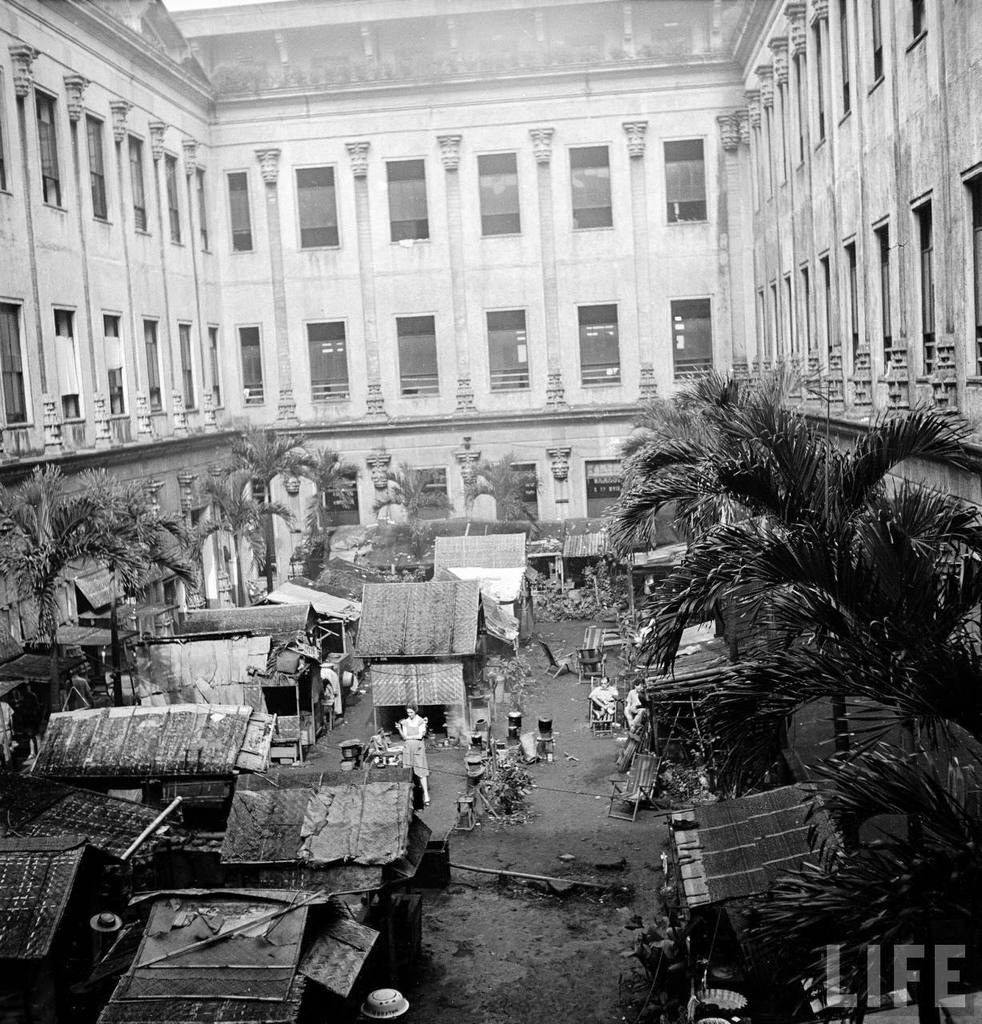Sunday dinner at the Yangco hacienda, “Floencia,” named for Mrs. Yangco, Flora. Such quiet and peace here. None of the signs of war hysteria as on our Central. Curry dinner served by three boys, coming into dining room one behind the other, in spotless white uniforms with household “Y” embroidered on jacket pockets. Curry dinner is a popular mid-day meal. First rice, then meat deep in a curry sauce—chicken today—then grated coconut, fried
shrimp, salted nuts, boiled eggs, and mango chutney sauce. This is often the complete meal, but not today. We had spaghetti with tomato sauce; a salad of pears, dates, and figs; cheeses; and ice cream and cake. Coffee and liqueurs in crystal decanters in sola on the floor below the dining room. The bar where we had drinks before dinner was also on this ground floor.
Conversation at dinner centered around the Dutch East Indies and Java. Now we wondered if such beautiful and unusual hand-carved woodwork could be found. We also wondered about the quinine—cinchona tree—forests so zealously guarded by the Dutch as they have a world monopoly on quinine. Visitors are allowed free travel through rubber plantations, but not inside wire-fenced quinine farms for fear we might bring out a seed or a plant.
After dinner the usual bridge game for the women, poker for the men. Then a visit to the chicken farm and to the piggery. Here the swine were kept in concrete-floored stalls as clean as a house, because the floors are scrubbed daily and rinsed with a strong hose.
Strange system of ranking families on a Central causes much dissension and jealousy. Each family is numbered according to Importance and salary. At the Hawaiian-Philippine Mr. Woods, the manager, is #1; Mr. Oss, the chief engineer, is #2; Mr. Conant, the boiler engineer, is #3; Mr. McMaster, the office manager, is #4; Mr. Gibbs, outside chief, is #5; Mr. Brown, assistant engineer, iS #6; and I, only a visitor, #7. There is an office, a theater (ciné), a commissary, and many bodegas. And of course there are the mill buildings.
Went to Bacolod shopping. A deserted town, store fronts boarded up, the few places open had almost no stock. There is not a spool of white thread for sale on the island. The army has bought all white thread for mosquito nets for soldiers and of course there is no more netting to be had. Even in screened houses we sleep under nets and
fortunately nearly every household has an extra bed net (held high on a frame attached to bed head and foot) to be used by guests. Soldiers from the States would suffer greatly from the mosquito and other insect pests. The most tightly screened houses have numberless varieties of non-poisonous spiders, ants, moths, roaches, and lizards.
Meeting of the sugar planters at the Central to discuss plans for reopening the mill now that Quezon has left the island and gone to Australia. Planters do not want to plow under matured sugar cane, since if it is milled there is a chance of selling it at the close of the war. Feeling toward Quezon is bitter. Now that he has left P.I. the planters are openly contradicting his rulings. Hawaiian-Philippine Central cannot well reopen mill now, however, as only about 200 of the 4,000 employees still reside nearby. The barrio houses and the mill barracks have been emptied as workers fled to the hills.
